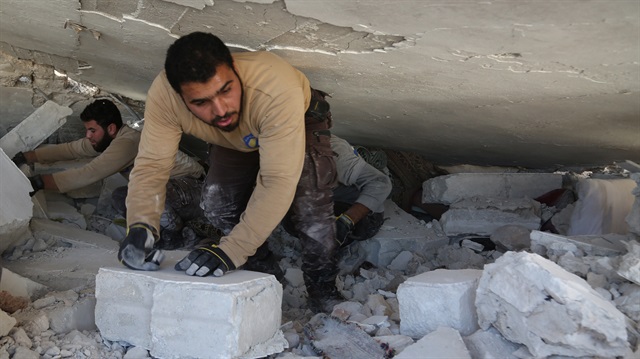
In the case of Syria, the hypocrisy of the International Community has reached new heights, as there is no consensus in putting a stop to the violence and the destruction
In early October, The Wall Street Journal carried a very powerful article titled “Aleppo is Obama's Sarajevo”. It is not the first article of its kind to appear in the global media as the brutal siege of Aleppo continues with no end in sight. Every time there seems to be some kind of deal reached at the negotiating table, it breaks apart soon after, as its many moving pieces are too difficult to keep together. The reference to Sarajevo is to the 1,425-day siege of Sarajevo between February 1992 and April 1996 by Republika Srpska forces leading to the death of some 14,000 people including some 5,500 civilians. Sarajevo is also infamous for the inability of the International Community to do much to stop the fighting due to the limitations imposed by their status as UN Blue Helmets which meant that the foreign troops there had a right to defend themselves if attacked but had no right to intervene even if they were witness to the many atrocities suffered by civilians at the time.
The battle for Aleppo has been raging for over 4 years since July 2012 with over 30,000 casualties to date. Sarajevo and Aleppo are their respective country's largest city while both are considered to be symbols of multiculturalism and multi-denominational coexistence. Recent history, though, has been tough on both cities.
Aleppo certainly exemplifies the failure of the International Community to put the ravages of war behind it in the post-Cold War World and to practice what it preaches, in particular putting into effect the doctrine of R2P or Responsibility to Protect, which was endorsed by all member states of the United Nations at the United Nations World Summit in 2005. The killing fields of Bosnia and Rwanda of the 1990s were meant never to be repeated, as the Responsibility to Protect Doctrine states that countries have a primary responsibility to protect their citizens from war crimes, crimes against humanity, genocide and ethnic cleansing; and, if states are unable or unwilling to protect their citizens from such crimes, the responsibility is transmitted to the international community.
Yet the R2P doctrine has failed to deliver as it has been invoked by the Security Council in a few cases such as the wars in the Ivory Coast (2011) and South Sudan (2011), but has had no universal consent to dealing with conflicts in South Yemen, Central African Republic, Libya, and now Syria. In fact, Russia dubiously invoked in attempting to justify its invasion of Georgia in August 2008 and the annexation of Crimea in March 2014. In fact, in the case of Libya, the Security Council passed Resolutions 1970 and 1973, which invoked only the first part of the doctrine (the obligation of states to protect their citizens), while did not address the issue of the responsibility of the international community to intervene.
In the case of Syria, the hypocrisy of the International Community has reached new heights, as there is no consensus in putting a stop to the violence and the destruction as states detest precedents and prefer to pick and choose the conflicts where they will intervene on the basis of political calculations. In doing so, they have diluted much of the authority and power of the United Nations. In fact, the UN was founded on the ruins of the Second World war to maintain the peace and stability of the post-war order, as well to protect the weak and vulnerable. Today, as the battle of Aleppo and Syria rages on to our increasing indifference, the diplomatic battle among the world's major powers is to avoid a veto in the Security Council to avoid a more permanent fracture among its permanent members.
As the war in Syria further unravels and Aleppo becomes an even greater hell-hole than it actually is, we need to come to terms with our hypocrisy. It is easy to blame the United States and the other global powers on not doing much to meet their responsibilities as the world's leaders. Yet neither do smaller countries and their leaderships take the lead in pressuring the Permanent Five into adopting a resolution that will call for the implementation of the Responsibility to Protect doctrine and, by extension, imply the necessity of the International Community to step in and protect the citizens of Syria “from war crimes, crimes against humanity, genocide and ethnic cleansing.” After all, all 193 member states of the United States accepted the R2P doctrine in 2005. Moving beyond words has proven to be a harder task than usual in this case.
Hello, the comments you share on our site are a valuable resource for other users. Please respect other users and different opinions. Do not use rude, offensive, derogatory, or discriminatory language.
The floor is all yours.








